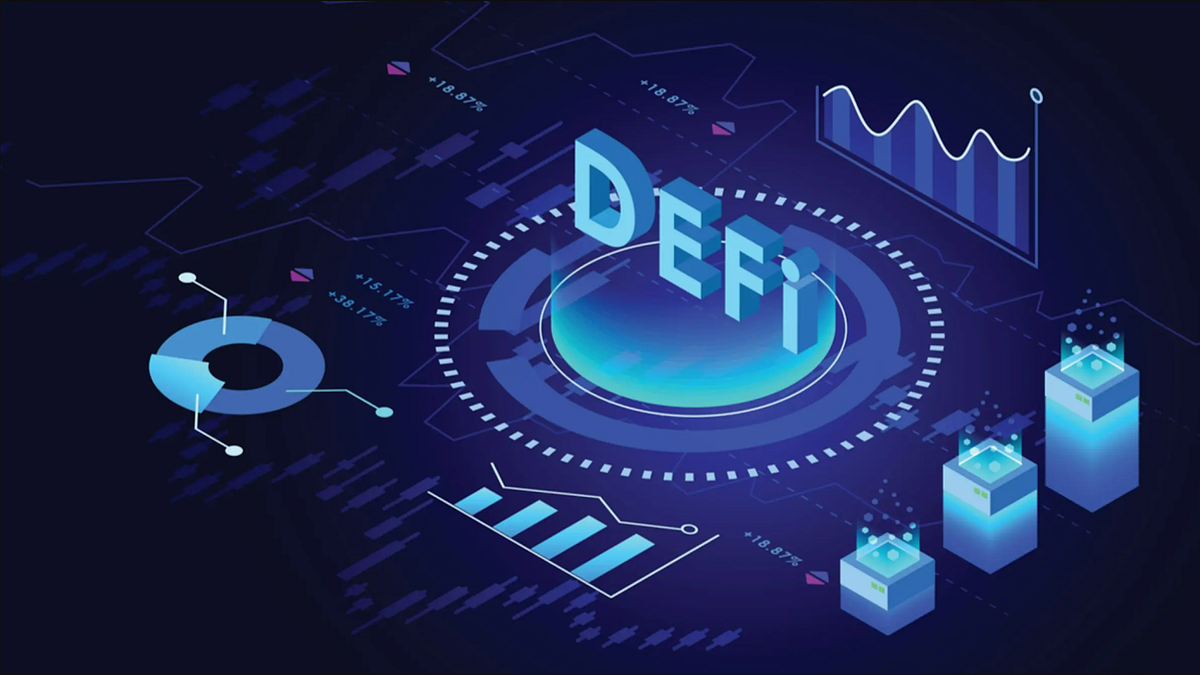In a world where financial systems often favor the privileged and exclude the underserved, Decentralized Finance (DeFi) is emerging as a game-changer. Built on blockchain technology, DeFi is democratizing access to financial services, empowering individuals with unprecedented control over their money. This article explores how DeFi platforms are reshaping the concept of financial independence and unlocking opportunities for everyone.
What is DeFi?
Decentralized Finance, or DeFi, is a revolutionary financial ecosystem built on blockchain technology. Unlike traditional financial systems that rely on banks and brokers, DeFi enables direct peer-to-peer interactions. These platforms operate on smart contracts, which are self-executing agreements coded to carry out specific functions without intermediaries. DeFi services include lending, borrowing, trading, and earning interest, all accessible to anyone with an internet connection. This decentralization promotes transparency, reduces costs, and provides a more equitable financial system.
How DeFi Differs from Traditional Finance
Traditional finance relies on centralized institutions that act as gatekeepers, controlling access and imposing fees. In contrast, DeFi eliminates these intermediaries, empowering users to transact directly and maintain control over their assets. DeFi is also open 24/7, unlike banks that operate within limited hours. Furthermore, its global accessibility ensures financial services reach underserved populations. This paradigm shift is driving innovation in financial inclusion and independence.
Evolution of DeFi Platforms
DeFi began as a niche concept but has rapidly grown into a multi-billion-dollar industry. Early platforms like MakerDAO laid the groundwork by introducing stablecoins, while others like Uniswap pioneered decentralized exchanges. Over the years, DeFi has expanded to include advanced services such as yield farming and liquidity mining. As blockchain technology matures, DeFi continues to evolve, integrating new functionalities and enhancing user experiences.
How DeFi Redefines Financial Independence
Accessibility for All
DeFi platforms break down barriers that have long excluded the unbanked and underbanked populations. Unlike traditional banks, which require identification, credit checks, and location-specific access, DeFi only needs an internet connection and a digital wallet. This inclusivity empowers individuals in developing regions to participate in the global economy. Additionally, DeFi ensures that financial services are available 24/7, making it convenient for users worldwide.
Full Ownership and Control
One of DeFi’s most significant advantages is that users maintain full control of their assets. By utilizing private keys, users eliminate the risk of custodians seizing or freezing funds. This autonomy fosters greater financial independence and reduces reliance on centralized entities. Furthermore, DeFi’s decentralized nature enhances security, as there is no single point of failure that hackers can exploit.
Innovative Income Opportunities
DeFi offers various income-generating opportunities like staking, yield farming, and liquidity mining. These activities allow users to earn passive income by participating in DeFi ecosystems. For instance, providing liquidity to trading pairs like NEIRO/USDT not only supports the ecosystem but also rewards users with transaction fees. This creates a win-win scenario where users can grow their assets while contributing to a more robust financial system.
Key DeFi Platforms Driving Change
Uniswap: Seamless Token Swaps
Uniswap revolutionized trading by introducing decentralized exchanges (DEXs), allowing users to swap tokens directly without intermediaries. Its user-friendly interface and robust liquidity pools make it one of the most popular platforms in the DeFi space. By enabling users to trade without a centralized order book, Uniswap exemplifies the accessibility and autonomy of DeFi.
Aave: Lending and Borrowing Redefined
Aave is a leading DeFi platform that enables users to lend and borrow cryptocurrencies without traditional credit checks. It introduces innovative features like “flash loans,” allowing users to borrow funds without collateral for a short duration. Aave’s open lending protocols ensure fair and transparent transactions, empowering users to maximize their financial potential.
MakerDAO: Stability in Volatile Markets
MakerDAO is the creator of DAI, a decentralized stablecoin pegged to the US dollar. By offering stability in an otherwise volatile market, MakerDAO provides users with a reliable medium of exchange and store of value. This innovation has made DeFi more accessible to users who seek security alongside financial freedom.
Challenges and Risks
Security Concerns
Smart contracts, while innovative, are susceptible to vulnerabilities that hackers can exploit. Several high-profile DeFi projects have experienced breaches, resulting in significant financial losses for users. As the industry grows, enhancing security measures and conducting regular audits are crucial to building trust and minimizing risks.
Regulatory Uncertainty
Governments worldwide are grappling with how to regulate DeFi platforms. The lack of clear regulations creates ambiguity for users and developers, potentially stifling innovation. However, as regulators gain a better understanding of DeFi, balanced frameworks could emerge, ensuring user protection while fostering growth.
Market Volatility
DeFi markets are highly volatile due to their reliance on cryptocurrencies, which often experience rapid price fluctuations. However, certain trading pairs, such as AIUSDT, have shown potential for stability even in volatile conditions. This highlights the importance of choosing assets and pairs wisely to mitigate risks while benefiting from DeFi opportunities. Thorough research and diversification remain key strategies for navigating these challenges.
The Future of Financial Independence with DeFi
Emerging Trends in DeFi
DeFi is at the forefront of financial innovation, with trends like decentralized autonomous organizations (DAOs) and cross-chain interoperability gaining traction. These advancements promise to enhance user experiences and broaden DeFi’s appeal, making it an integral part of the global financial ecosystem.
DeFi’s Potential to Replace Traditional Finance
While traditional finance will likely coexist with DeFi, the latter’s advantages in transparency, accessibility, and efficiency position it as a formidable competitor. As adoption grows, DeFi could replace or significantly complement existing financial systems, leading to a more inclusive global economy.
What are the Opportunities for Investors?
DeFi presents a broad spectrum of opportunities for investors, ranging from earning passive income to leveraging advanced trading strategies. Staking and yield farming allow investors to grow their assets by contributing liquidity or participating in protocol governance. These mechanisms provide a steady stream of rewards while fostering the growth of decentralized ecosystems.
Additionally, decentralized exchanges offer innovative ways to trade assets without intermediaries, ensuring transparency and lower fees. Investors can also explore emerging DeFi protocols that focus on unique sectors like lending, borrowing, and synthetic assets. By carefully diversifying their portfolios and staying informed, investors can capitalize on the transformative potential of DeFi to achieve significant financial growth.
DeFi: Revolutionizing the Future of Finance
DeFi platforms are transforming how we perceive and achieve financial independence. By breaking down barriers, offering innovative income opportunities, and empowering users with full control, DeFi is reshaping the financial landscape. While challenges remain, the potential for a more inclusive and equitable global economy is undeniable. Start exploring DeFi today and take the first step toward your financial freedom.





Be First to Comment